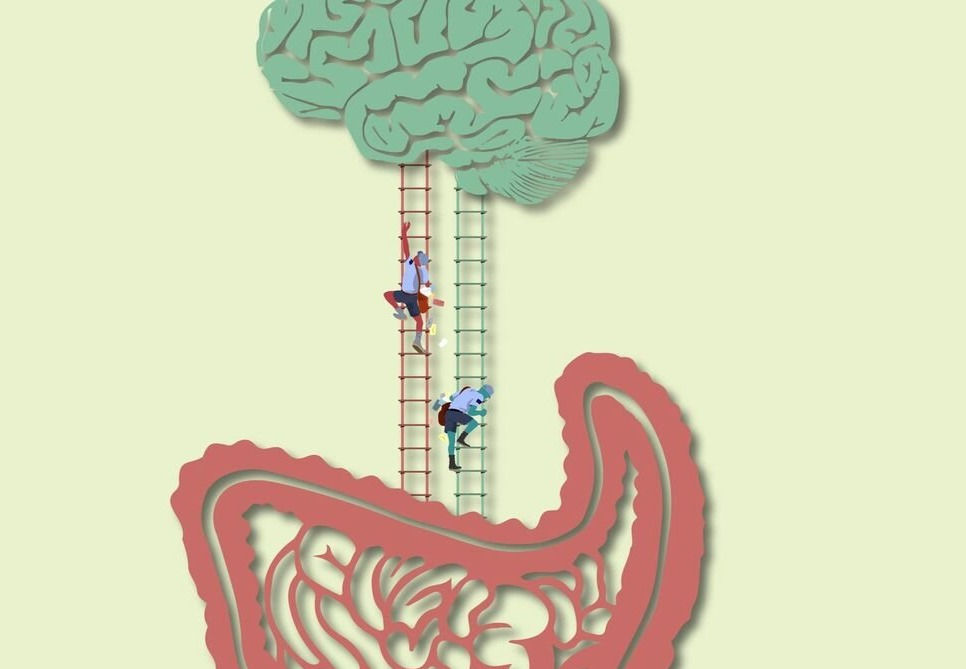The Gut-Brain Axis: You Are What You Eat
- Ananya
- Feb 6, 2023
- 3 min read

A groundbreaking twenty-first century’s biomedical breakthrough is proving generations of parents right. “You Are What You Eat”, a once-platitudinous phrase milked by parents for over two centuries, is in fact rooted in one of contemporary science’s most revolutionary advances; the gut-brain axis, a bidirectional signalling pathway that biochemically bridges the brain to the gastrointestinal tract. In other words, it serves as a bridge between an organ that essentially determines your identity and physiology, to a body system designated to what you eat. The human gut biome is home to diverse forms of microbiota, organisms that have been proved to shape our very physiological and mental being.
As children, under the influence of active dietary choices made for us by our guardians, we developed our nutritional habits that have proven to follow us beyond the beginnings of adulthood. Personally, as someone who has always been a picky eater and has grown up to this phrase constantly repeated to me, hearing the harsh scientific reality behind the influence of our nutrition on our physiological, and - more shockingly - our cognitive health, was a baffling experience. While it may be familiar information that calorie-rich foods like chocolate elevate your mood through dopamine releases and that protein-rich meals improve concentration, the gut-brain axis theory goes further to explain how our gut health is relevant to issues as grave as neurodegenerative disorders like Parkinsons.
The gut-brain axis defines a direction link between the emotional and cognitive brain centres with the intestinal tract, thus validating several hypotheses that suggest that anxiety and depression not only contribute to issues like IBS, functional bowel problems, bloating, aches, indigestion, etc. and rather, these issues may also cause anxiety and depression. The enteric nervous system, the nervous system that resides in our gut, communicates back and forth with our brain which acts as a communication/coordination centre. The food assortments that are required to nourish our body differ when it comes to different demographic segments, however, in the contemporary world which is more fast-paced than ever; as more of us resort to fast foods, other than increasing the risk for physiological disease, we are generating great detriment to our mental state. A 2020 study highlighted a crucial link between an unhealthy diet and the morbidity rate of anxiety, associating mental health issues to diets that are high-fat, high-sugar, and deficit in fruits and vegetables [1]. With the increased conscientization of mental health issues, the significance of our gut health extends far beyond our physiological wellbeing, into this increasingly influential mental realm.
The human gut is home to trillions of microbes that are shown to regulate both our physiology and psychology, with the gut-brain axis providing a pathway for the development of various physical and neurological disorders; the more shocking of which include Alzheimer's Disease (AD), Autism Spectrum Disorder (ASD), Multiple Sclerosis (MS), and Parkinson's [2]. For example, among AD patients, an altered gut-microbiota composition was observed involving a deficit of butyrate-producing bacteria and thus, a disrupted gut homeostasis suggesting an involvement with AD pathogenesis. Butyrate is an acid found in everyday food products, including dairy, legumes, cold rolled oats, etc. It’s no surprise that scientists were quick to delve into further investigations, searching for answers and links to these relatively unexplained neurodegenerative diseases.
For all we know, the biome of microbes in our gut has everything to do with who we are, and not merely our physiological and mental wellbeing. No matter how otherworldly and anatomically disturbing it may sound, your gut has a mind of its own; with decades worth of experimentation that has been done and that is to come, the phrase “you are what you eat” is endlessly more meaningful to our wellbeing today.
2. Suganya, Kanmani, and Byung-Soo Koo. “Gut-Brain Axis: Role of Gut Microbiota on Neurological Disorders and How Probiotics/Prebiotics Beneficially Modulate Microbial and Immune Pathways to Improve Brain Functions.” International Journal of Molecular Sciences, U.S. National Library of Medicine.
For inquiries, feedback, etc. you can visit the community tab, leave a message or simply mail ingenious.theblog@gmail.com
Instagram ~>https://www.instagram.com/ingenious.thepage/
SPOTIFY - STEMed: Exploration Beyond the Surface -



Comments